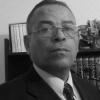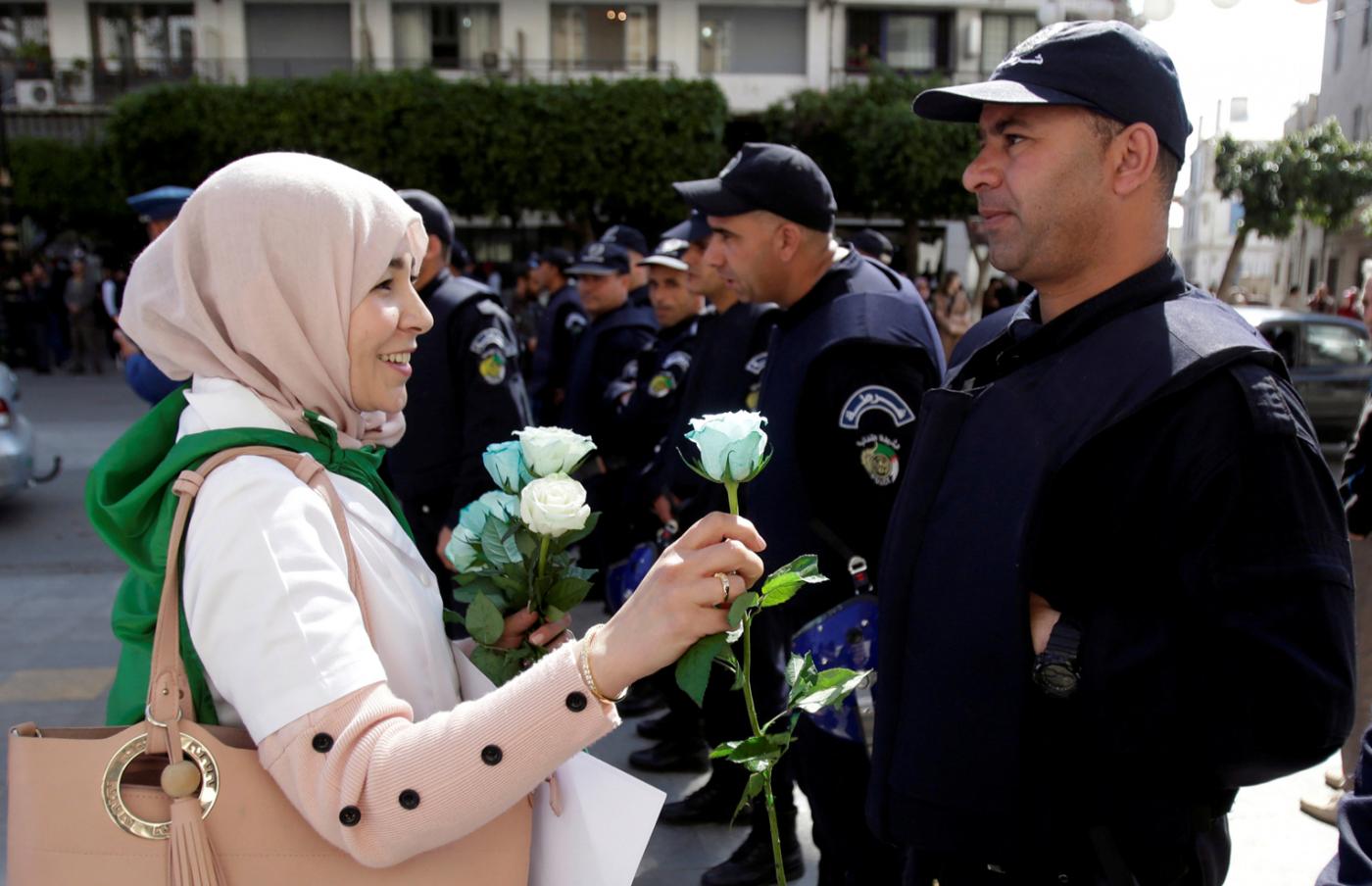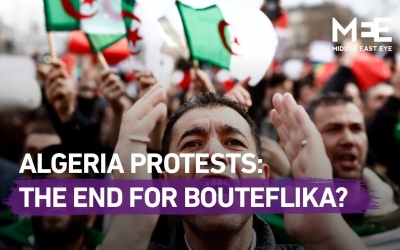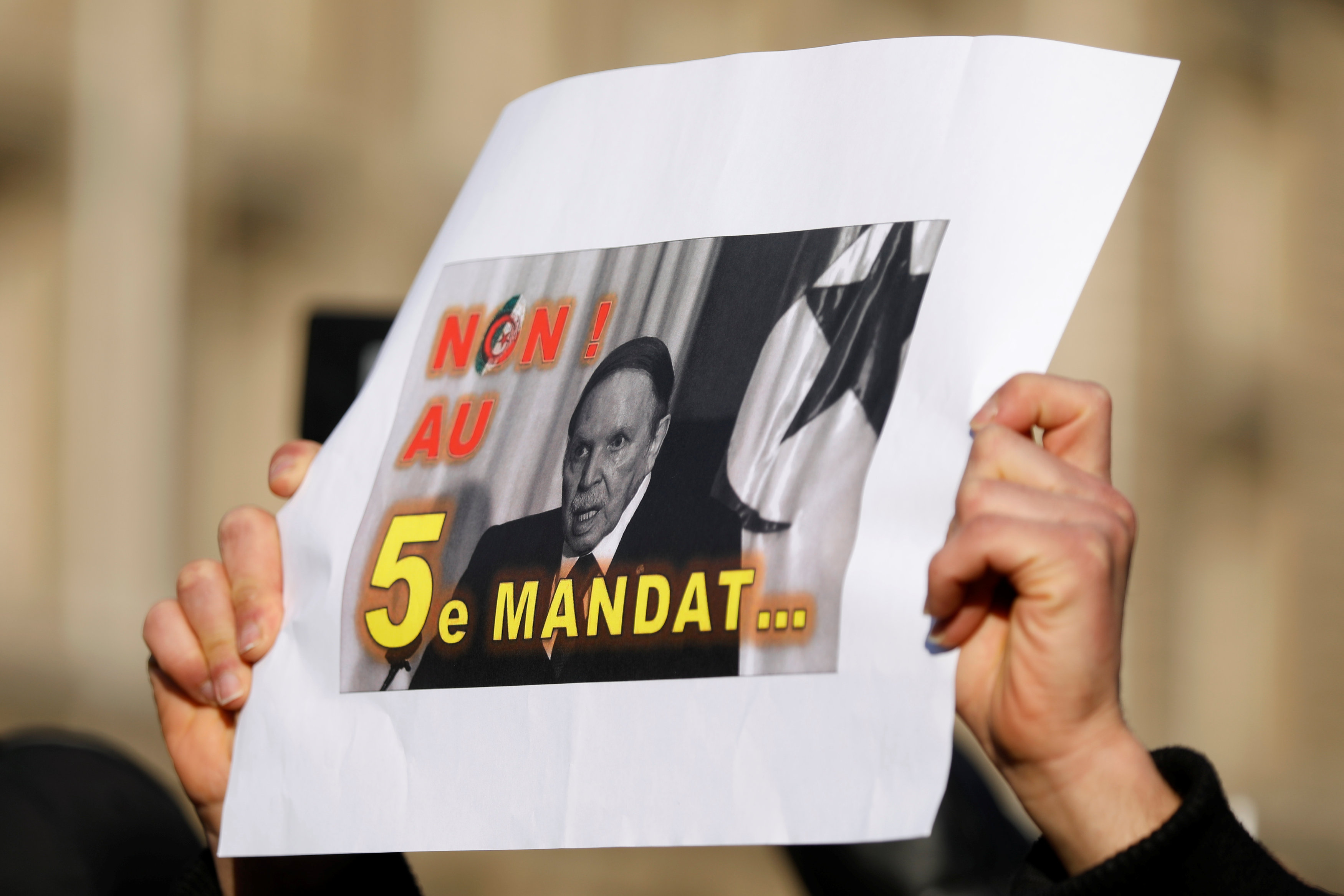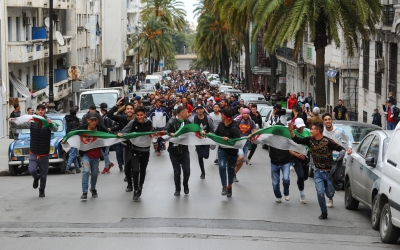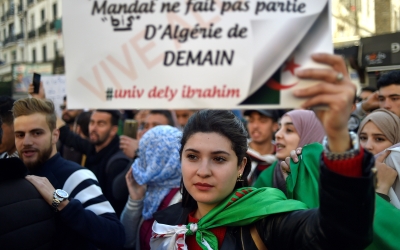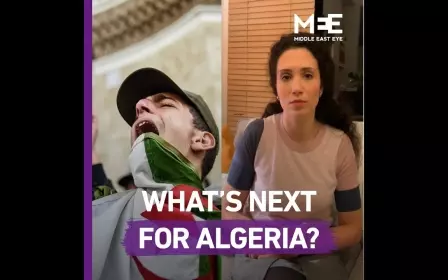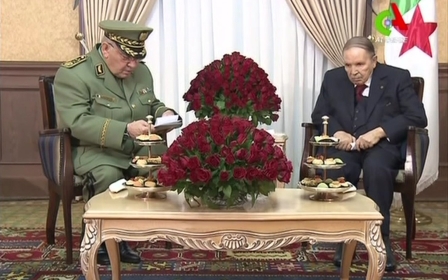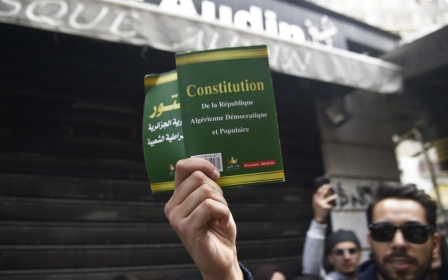From despair to victory: Five weeks that changed Algeria
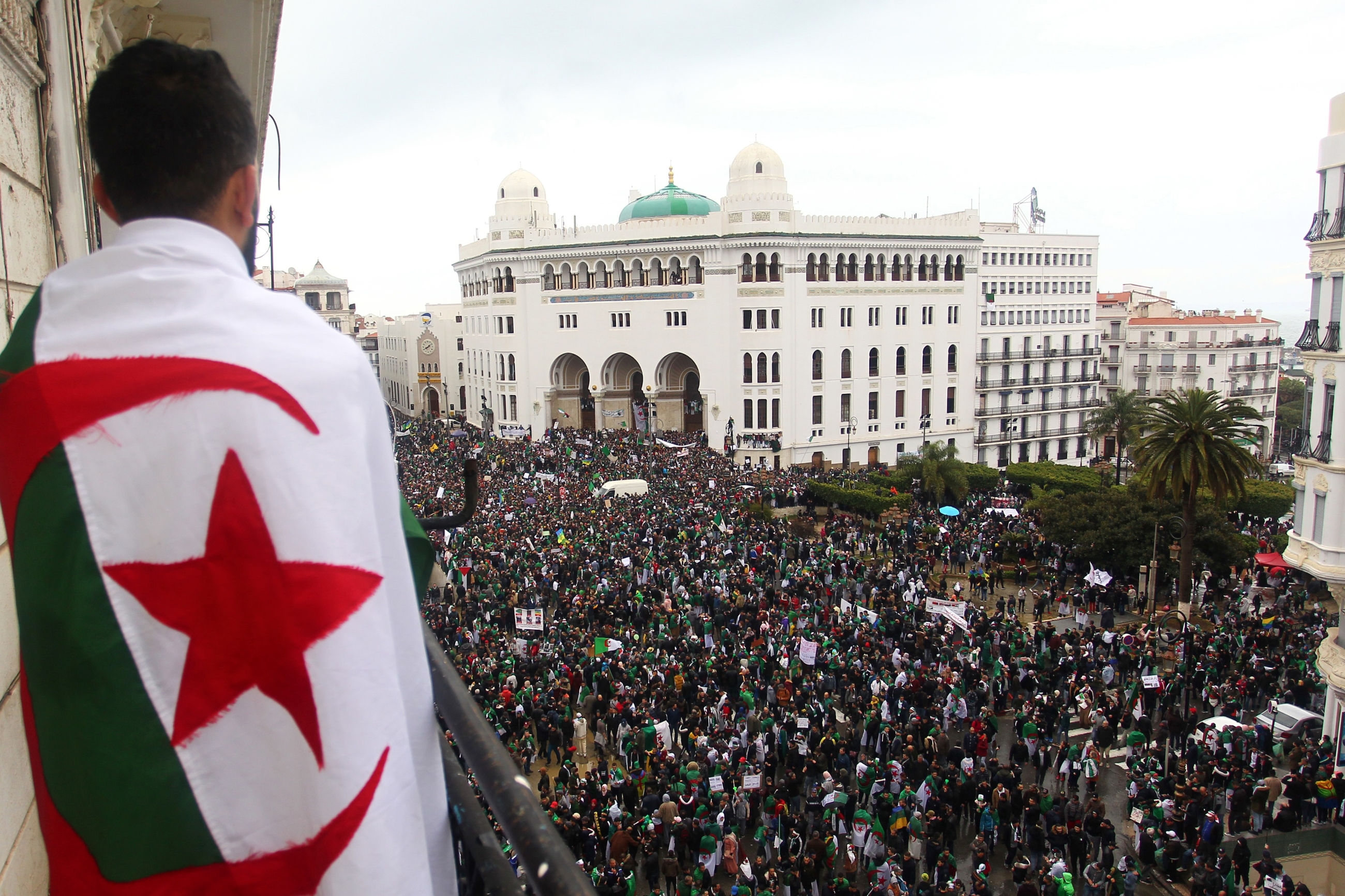
Since 22 February, the pace of history in Algeria has accelerated. Within five weeks, the street became a major political player, but the rulers have also responded to the situation in a way to ensure their survival.
As the protest movement enters its sixth week, Algerians are surprised and amazed. In a single month, the situation has undergone significant change.
Catalyst for change
To appreciate the extent of such change, let's recall that a month and a half ago, on 10 February, former prime minister Abdelmalek Sellal was chairing a public meeting to announce Abdelaziz Bouteflika's candidacy for a fifth term.
Algerians seemed helpless and the opposition clueless before a president willing to die in office. Nothing and no one seemed capable of resisting a state that has become obsolete and out of touch.
This impasse acted as a catalyst. It enhanced a feeling of humiliation that caused an outburst of anger.
How does the regime intend to maintain a president who has already been in office for 20 years, who is unable to travel, to speak, to chair meetings and attend international forums because of the aftermath of a stroke dating back to April 2013?
The state's disregard for its citizens, the oligarchs' arrogance, and the uncritical behaviour of the political class were all cocktail ingredients that triggered this revolt
The state's disregard for its citizens, the oligarchs' arrogance, the immorality of some high-profile personalities and the uncritical behaviour of the political class were all cocktail ingredients that triggered this revolt.
The miracle
On 22 February, following calls on social networks, demonstrations were held in most of the country's major cities. And that's the miracle. Tens of thousands of Algerians gathered and demonstrated, displaying a remarkable civic solidarity. Since then, every Friday, the rallies have grown from one week to the next.
On the part of the demonstrators, the change is dramatic. The Algerians, who used to talk about themselves with mockery and contempt, are now proud to assert their identity, symbolised by ubiquitous flags.
Civic behaviour, discipline, solidarity and a will to change the country have replaced violence, cowardice and resignation that had been in force until then. The humiliating images of politicians, ministers and party leaders surrounding a frame with a picture of President Bouteflika in wacky ceremonies have disappeared.
Since 2001, demonstrations were prohibited in Algiers, and almost impossible to organise in other cities of the country. This did not prevent riots, during which protesters used to block roads and smash public buildings.
A big gap
Since 22 February, and despite a large number of rallies in all parts of the country, few incidents have been reported. Violence is the exception, whereas in the past it was the rule. While Prime Minister Ahmed Ouyahia claimed that the demonstrations were banned because of the danger they posed, the recent events proved him wrong.
In the street, and later in the media, a new vocabulary has been introduced. There is an open debate, without taboos. People talk about the law, the constitution, change, a roadmap.
The country has unleashed new talents, brilliant polemists, effective leaders with overwhelming enthusiasm and remarkable dedication. The gap is striking between the quality of what is emerging in today's Algeria and the selection system that has been in place for years.
The system chose the least competent, those with the least ethical and moral standards, the most apt to betray and follow the dominant power, whatever it may be.
President Bouteflika's most zealous supporters who called for a fifth term two months ago, such as the National Liberation Front (FLN) head Mouadh Bouchareb, who once compared Bouteflika to the prophet Abraham, suddenly abandoned him today.
Spectacular victories
Along the way the street achieved spectacular victories that were unexpected a month and a half ago. The first objective of the protest: "No fifth term for Bouteflika", was achieved. President Bouteflika can no longer remain in office, even though he cancelled the 18 April presidential election to illegally extend his fourth term in office.
No player can claim victory because the game remains open
General Ahmed Gaid Salah, one of the president's closest companions, was obliged to let go of him. He called for the enforcement of Article 102 of the Constitution, which provides for the ousting of the president on poor health grounds.
The FLN and the RND, two government parties, as well as the UGTA trade union jumped ship and asked for the application of Article 102.
Former prime minister Ouyahia, one of the most hated politicians in Algeria, has been sacked and his government dismissed. The political class, which once showed arrogance, is mocked and totally discredited.
Fierce humour has overwhelmed the nation, ridiculing the government and its men. An incredible turnaround has occurred. Having been a minister during Bouteflika's fourth term is finally perceived for what it is: a shameful choice.
Citizens have also discovered their strength. They exist, they are festive and very politicised, whereas before the protest, the dominant image was of a crowd without perspective.
In the heat of the moment, the street confirmed that social networks are now a formidable power centre. Political life is less about political parties than about the internet. This is where mobilisation is organised, watchwords are exchanged and information is disseminated.
In addition, one hypothesis has been refuted: Islamism has faded, becoming almost invisible. Yet, the first rally call "after the Friday prayer" on 22 February had raised doubts. However, not only were the Islamists not the instigators of the rally, but they played no role, as evidenced by the gender mix in the demonstrations.
The state's 'smart actions'
On the other hand, the state also scored points. The end of the Bouteflika era is an event. It allows the rulers to resolve a major image issue, but also a functioning issue since the president's state of health disrupted the institutions' functioning.
In the process, the state got rid of its most controversial members. Some already seem doomed. It is difficult to see a future for the head of the UGTA trade union, Abdelmadjid Sidi-Said, former prime minister Abdelmalek Sellal or veteran minister Amar Ghoul.
Smarter actions have also been carried out by the state with remarkable success.
The security forces have been trained to accompany and protect the demonstrators. The result is surprising: the police have been largely rehabilitated in the eyes of the public, as has the judiciary, whose participation in certain protest actions has been widely publicised. The same judges were once accused of corruption and serving as the rulers' judicial arm.
The army, the backbone of Algeria, is also doing relatively well, despite the involvement of its chief in a long partnership with President Bouteflika.
The expected outcome changes the situation: it was General Salah who gave the lead to set in motion the impeachment procedure. This allows the army to play the right role. A possible departure of Salah, plausible in the medium term, would complete the picture.
Deep state at work?
Is this ability in crisis management enough to affirm that what is happening is "fake"?
While no one is venturing to openly embrace a "conspiracy" scenario and say that the protests are entirely staged, there have been strong voices warning against intrusion of the former DRS, the intelligence service that was dissolved in 2015.
The former president of the opposition Rally for Culture and Democracy, Said Sadi, and the former FLN head and president of the National Assembly, Amar Saadani, have, a few hours apart, denounced the part played by the "services" and the "deep state".
Sadi said there were "threats" related to the protest. "Among the immediate threats are the political police interventions on the internet and during the demonstrations," he wrote on his Facebook page.
As for Saadani, he held the "deep state" responsible for all the country's ills. He even credited it with Bouteflika's candidacy, which would not have come from the president himself, but from the special services. Why? "For this deep state to continue managing the country," he said.
Whether substantiated or not, such criticisms reveal the ability of the state to manage crisis situations and even to benefit from them. If Bouteflika's departure is confirmed, this will allow it to restore order in its ranks and restore some discipline.
But in any case, Algeria has undergone considerable and positive change during these five weeks. The country has upgraded, eliminating the most contentious and controversial staff and factors that contributed to the crisis.
The street, like the state itself, has benefited from this change. But no player can claim victory because the game remains open. At least because President Bouteflika has not given up, and seems determined to play extra time.
The views expressed in this article belong to the author and do not necessarily reflect the editorial policy of Middle East Eye.
This article originally appeared in the MEE French edition. It was translated by Reda Zaireg.
Middle East Eye propose une couverture et une analyse indépendantes et incomparables du Moyen-Orient, de l’Afrique du Nord et d’autres régions du monde. Pour en savoir plus sur la reprise de ce contenu et les frais qui s’appliquent, veuillez remplir ce formulaire [en anglais]. Pour en savoir plus sur MEE, cliquez ici [en anglais].


